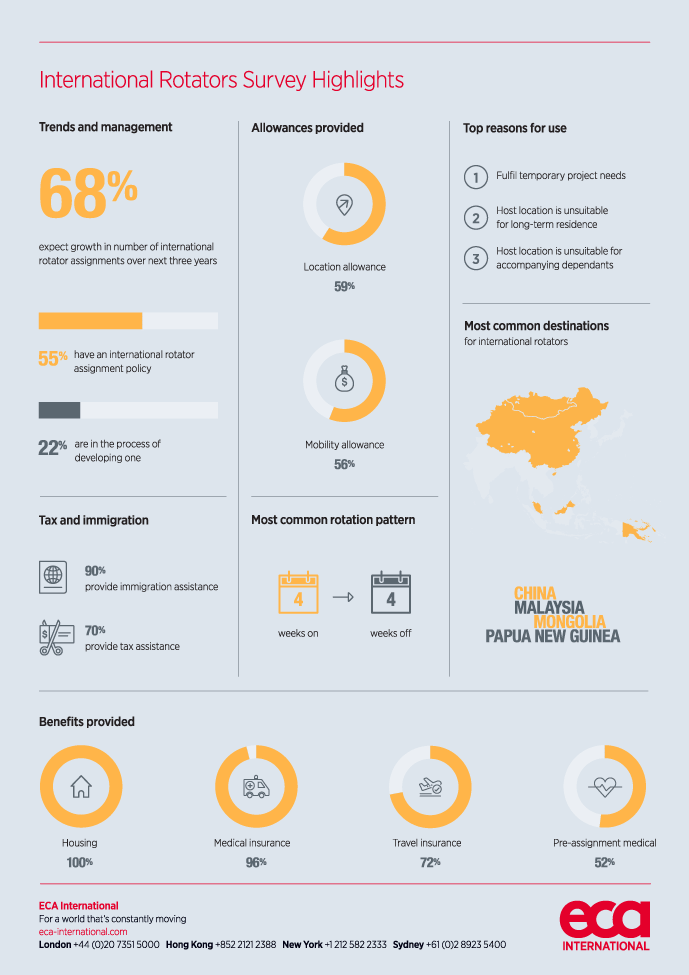Rotator assignments are commonly used in the oil and gas, construction and engineering sectors to mobilise skilled staff to work in remote areas and/or offshore installations. These locations often lack recreational facilities and infrastructure and are challenging to live in and travel to, making them inappropriate destinations for more traditional assignments or permanent transfers. Employees instead transfer between the home and host location according to a fixed rotation schedule, most commonly working intensively at the site for four weeks before returning home for four weeks and then repeating the cycle.
ECA’s recent International Rotators Survey found the use of this assignment type to be on the rise, with over half of participants having seen an increase in their use over the past three years, and more still predicting further growth in their rotator numbers over the next three years. The most common locations for rotators were found to be in China, Malaysia, Mongolia and Papua New Guinea.
Unlike other assignment types, rotator assignments are not increasing in prevalence because they are considered a more cost-effective or simpler alternative to long-term assignments. There were no indications from the survey that companies were seeking to reduce the costs of rotator assignments, which suggests that providing a competitive package to recruit the talent needed to work on remote sites is of greater importance. Salary packages tend to be home-based in design, commonly including location and mobility allowances and generous benefits provision.
The frequent travel involved in rotator assignments means that assignees have potentially complex tax and immigration positions. Most companies take compliance issues very seriously, providing some sort of tax assistance in 70% of cases and immigration assistance in 90% of cases.
The key findings from the survey are shown below.

FIND OUT MORE
A quarter of survey respondents pay their international rotators a remote allowance. ECA's Remote Allowance Calculator enables you to calculate location allowances that account for the specific hardships of living on oil rigs, remote mining facilities and other challenging locations.
The results of ECA's International Rotators Survey are now available to purchase.
Our experienced consultancy team can help you to design global mobility policies, whether you are creating them for the first time or reviewing existing documents. Contact us to find out more.
Please contact us to speak to a member of our team directly.